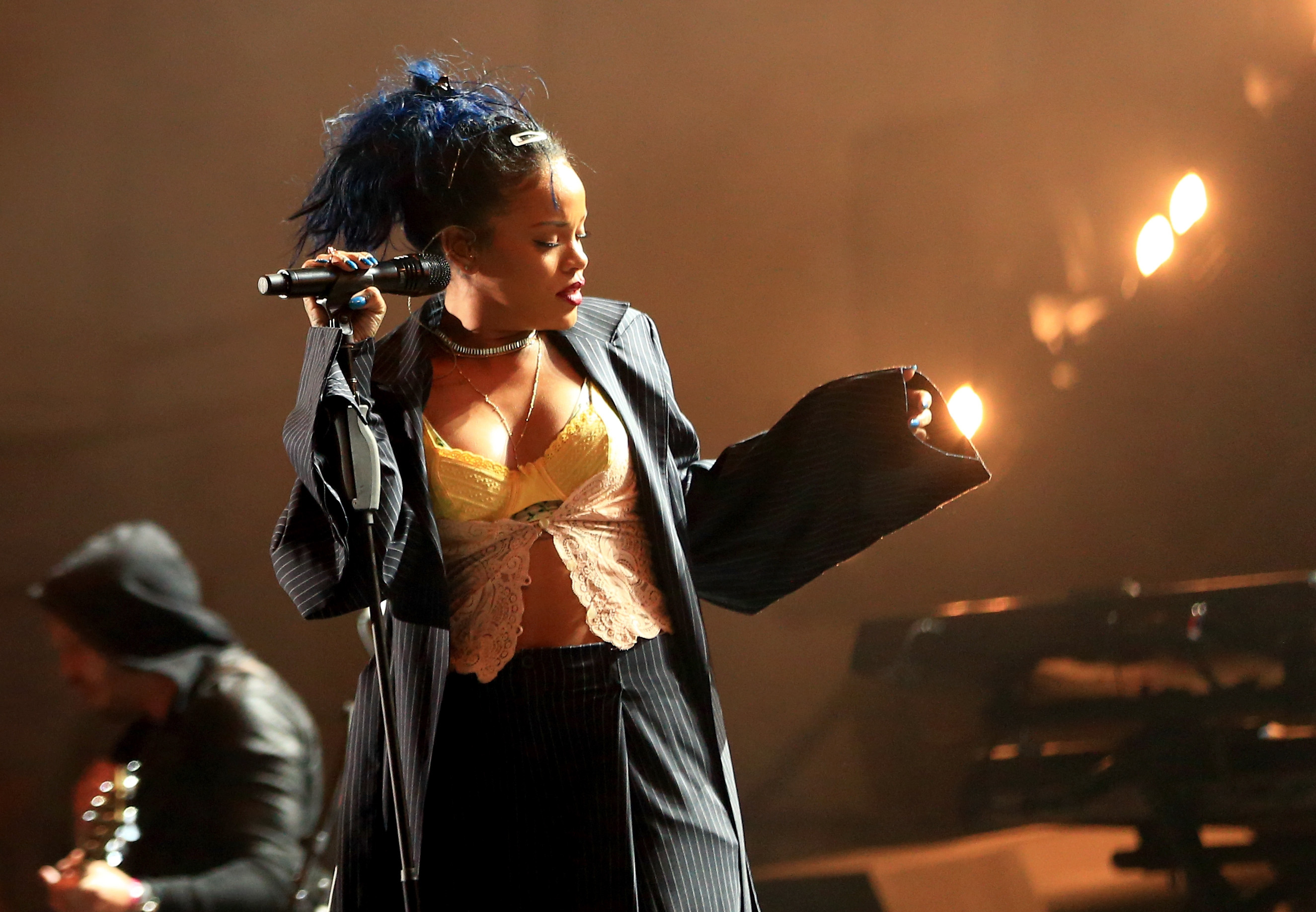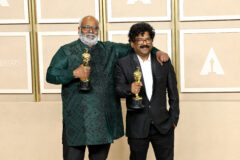Release Date: January 28, 2016
Label: Westbury Road / Roc Nation
“F**k me up,” the world screams at the godhead Rihanna, but the Rih Most High has decided to make us wait. We might have expected the swerve encapsulated in the introverted ANTI, an album with only one song (“Work”) that you could play at the club unremixed, a collection that seems executive-produced not by Rihanna but by a metric ton of weed. Gone is the glossy workaholic who released seven albums in eight years; emerging is an artist doubling down on the capriciousness that’s central to her allure. There was always a certain mischief tugging at and incorporated into Rihanna’s resolutely commercial packaging, and now that mischief — girlish, idiosyncratic, teasing — has become the packaging itself.
The long-awaited ANTI came out a day early and at least a year late, in an extended, mismanaged rollout that relied awkwardly on Samsung and TIDAL machinery and generally proceeded like someone was throwing food at a wall. When the album leaked, shock spread throughout a sonically blue-balled nation that this was the result of one of the biggest pop stars in America taking an unprecedented 40-month hiatus that presumably was at least in part devoted to getting this dank eighth album right. ANTI is not what anyone would expect from a stadium-filling, anthem-reliant pop artist with Rihanna’s heat-seeking relentlessness: The previous singles (the savage, high-octane “Bitch Better Have My Money” and the charmingly twangy “FourFiveSeconds”) didn’t make it, half the tracks feel like loosies, and the lackadaisical dancehall single “Work,” featuring Drake and a patois that’s practically melting, slaps the hardest in the bunch.
Further surprises: the ’80s synth-rock on “Kiss It Better,” the doo-wop settings on “Love on the Brain,” the actual Dido on “Never Ending” (on which perhaps the artist most diametrically opposed to Rihanna got a songwriting cut). Rihanna inches into staring-contest territory with “Desperado,” a skittering, self-indicting lamentation arranged so literally that its instrumental hook takes the melody of a movie tumbleweed; she gets even more deadpan on “Same Ol’ Mistakes,” a Tame Impala cover in which she sings over Kevin Parker’s unaltered backing vocals and track. It’s audaciously straight-faced, a wild inclusion from an artist with every collaborator at her disposal, and it’s the final proof that Rihanna was not interested in using ANTI as a monetizable extension of her particular, unmatched persona. You want her oil-slick and disdainful, wearing feathers and diamonds, slashing into a million-dollar hook with filthy incandescence and a wink? Tough luck. Rihanna’s coming off a three-year weekend, and we’re seeing what it looks like for her to step outside the broad outlines of imperious radio domme work and reach for a new kind of free.
ANTI is Rihanna’s first aesthetically personal album, and throughout its disorderly roaming, it remains revelatory in a strict sense; it’s a musical step sideways but an artistic step up. For once, Rihanna is drawing on whims rather than characters, uncertainties rather than pronouncements, her own desires rather than the desires of her audience. Her image and her instincts seem to be expanding and moving towards each other, to an unfinished but unexpectedly gratifying result. The icy-hot kiss-off queen is still alive on this album, particularly on the album’s Travis Scott-heavy, what-the-hell-did-the-Weeknd-do-here nadir “Woo,” as well as on the DJ Mustard joint “Needed Me.” But this time around, there’s a depth and a malleability to Rihanna’s sexual steeliness; it’s contained and undiminished in her voice and delivery, and it extends into the parts of the album where she’s affectionate, despondent, or faded to blank.
And, under Kuk Harrell’s production, Rihanna’s voice is, for the first time ever, extraordinary. Its essential commanding tautness now accommodates a diffusive tone, a roundness, a cottony falsetto. The playful, rough, kittenish growl she used to great effect in “FourFiveSeconds” reappears on “Love on the Brain,” and grows into a bluesy, ragged, winsome roar on “Higher,” a No I.D. production that, in two minutes, builds a saloon and floods it with wildly romantic desperation. Over a single drunk violin, Rihanna sings like the water’s rising, obliterated and almighty, hoarse and sublime. Of all the tracks on the odd, lovely ANTI, this is the one that envisions a new future for Rihanna — one where she’s both a vengeful deity and a human woman incarnate, where she can deliver her audience the annihilation we’re craving, and f**k herself up too.





